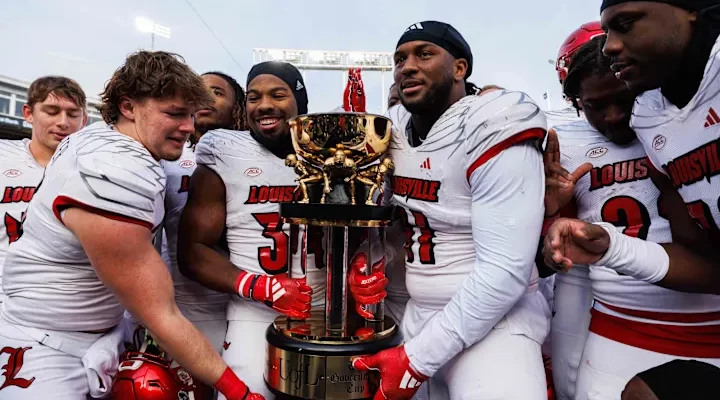Mark Stoops Confident Kentucky Football’s Future Success Tied to New Revenue Sharing Model
Kentucky football head coach Mark Stoops recently spoke candidly about the program’s future, emphasizing how the new revenue sharing agreements within college athletics have positioned the Wildcats for sustained success. As the landscape of college football continues to evolve, particularly with increasing financial pressures and the rise of name, image, and likeness (NIL) opportunities, Stoops believes that Kentucky is now better equipped than ever to compete at the highest level. This confidence stems largely from a revenue sharing model that promises to level the playing field and provide the resources necessary to build a championship-caliber program.
For years, financial disparities between college football programs have created significant competitive imbalances. Powerhouse programs with massive budgets and lucrative media deals have often dominated the recruiting landscape and on-field results, leaving programs like Kentucky striving to close the gap. The introduction of new revenue sharing initiatives, however, signals a shift in how money flows through college sports, promising greater financial parity among programs.
Mark Stoops recognizes this shift as a game-changer. Under the new model, Kentucky football will receive a more equitable share of conference and media revenues, allowing the program to invest more heavily in facilities, coaching staff, recruiting, and player development. These investments are critical in a sport where marginal gains can lead to wins and where attracting top talent often depends on the quality of resources and support available to student-athletes.
Stoops’ perspective reflects a broader understanding of how money influences success in college football. It’s not just about spending more but spending smarter, leveraging resources to build a sustainable program culture. Kentucky’s football program has steadily improved under his leadership, moving from an afterthought in the SEC to a team that consistently challenges some of the conference’s best. With increased revenue sharing, the Wildcats are poised to accelerate that progress.
The impact of revenue sharing goes beyond facilities and coaching salaries. It also directly affects recruiting—the lifeblood of any college football program. As recruiting battles become more intense and national, programs with deeper pockets can offer better support systems for athletes, including advanced training, nutrition, academic assistance, and NIL guidance. Kentucky’s ability to tap into these resources will enhance its appeal to high school prospects who might have previously overlooked the program in favor of traditional SEC powerhouses.
Furthermore, this financial boost can improve the fan experience, another critical factor in a program’s success. Enhanced stadium amenities, expanded marketing efforts, and community engagement initiatives all contribute to building a strong fan base, which in turn generates more revenue and energizes the team. Stoops understands that success is cyclical: better performance leads to more fans, which leads to increased revenue, which fuels further success.
Kentucky’s position within the SEC is particularly important to note. The Southeastern Conference is widely regarded as the toughest and most competitive league in college football. To thrive here, programs must consistently invest at a high level. Revenue sharing helps Kentucky keep pace with traditional SEC giants by providing the financial backing necessary to compete year after year.
Stoops has also highlighted the importance of this revenue sharing model in the context of the evolving college football playoff and scheduling landscape. With changes to playoff formats and increased emphasis on marquee matchups, programs like Kentucky must be ready to compete both on and off the field. Financial flexibility allows the Wildcats to strategically schedule games, negotiate contracts, and expand their national footprint—all crucial for recruiting and fan engagement.
From an SEO perspective, this topic resonates with many key search terms, such as “Kentucky football revenue sharing,” “Mark Stoops on SEC finances,” “college football financial parity,” and “impact of revenue sharing on recruiting.” Long-tail keywords like “how revenue sharing affects Kentucky Wildcats football” and “Mark Stoops views on new college football revenue models” capture niche audiences interested in the business side of college sports and program development.
Kentucky fans and college football analysts alike are paying close attention to how the Wildcats leverage this new financial model. Positive results could mark a turning point, propelling Kentucky football into consistent contention for SEC titles and playoff appearances. Stoops’ public confidence signals that the program is ready to seize this opportunity and translate financial advantages into tangible on-field success.
In summary, Mark Stoops’ message is clear: Kentucky football is in a stronger position than ever, thanks in large part to the new revenue sharing model. This approach levels the financial playing field and provides the resources needed to build a competitive program in one of college football’s toughest conferences. As the Wildcats prepare for upcoming seasons, the combination of strategic investments, enhanced recruiting, and improved facilities fueled by equitable revenue distribution will be key to sustained success. For fans, players, and the university, this financial evolution represents a promising future and a new chapter in Kentucky football’s rise.



